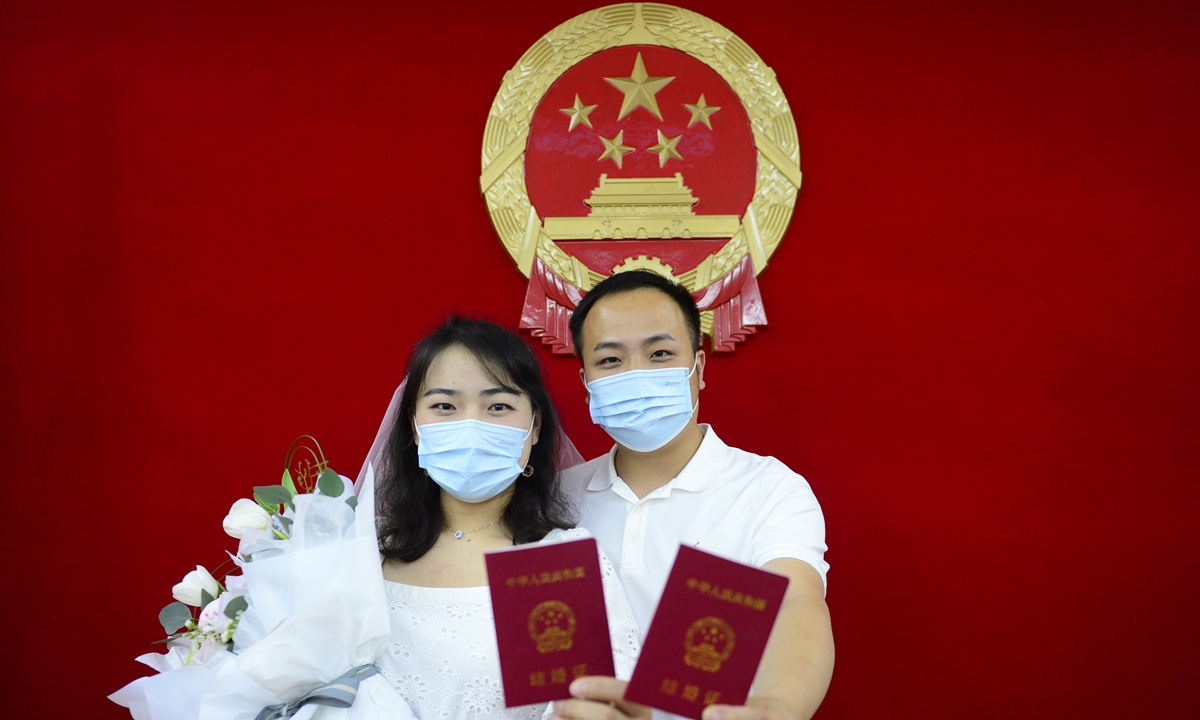
A newly wedded couple showcase their marriage certificates. Photos: IC
Some cities in East China's Jiangsu Province sparked debate on social media on Thursday by offering self-service terminals for local marriage registration procedures, a move that can shorten the process from 15-20 minutes to about five minutes. Netizens worry it may weaken the sense of ceremony of marriage, leading to hasty weddings.
To get a marriage certificate, a new couple need only scan their identity documents, including ID cards and hukou (household registration) booklets, and then input their basic information, said a staffer at the Xinghua marriage registration center in the city of Taizhou.
"It's as convenient as buying a train ticket," the staffer told the Global Times on Thursday.
Chinese netizens nonetheless had a cold response to the machine, with many Weibo users grumbling that such an overly simple process "kills the sense of sacredness in getting married."
"I prefer the previous manual process: A registration staffer gave me the certificate with both hands and said 'congratulations'," one user wrote. "I like that human touch."
The self-service terminal also sparked concerns on possible hasty, impulsive marriages. "It may mislead some young people into thinking that marriage is an easy and trifling matter," wrote another Weibo user.
Some netizens worried as well that the process may lead to fraud. "What if people who have intellectual or psychological disorders are deceived into scanning their materials?" one wrote. "They may not even know what is happening."
Xu Shanshan, a female lawyer, said she doesn't support the self-service machine or similar simplifications of marriage registration. "The lack of careful consideration before getting married may bring potential risks to a couple's life after marriage," she told the Global Times on Thursday.
Also a political advisor in Shanghai, Xu last month proposed the "right to be informed" for "quasi-couples" after they registered for marriage but before their registrations came into force.
During this period, which Xu suggested should be two weeks, those couples are entitled to crucial information from relevant government agencies, including their partners' medical and marital histories and criminal records, Xu said.
Instead of directly giving a certificate, the registration process could at least include "a kind recommendation for a free premarital check-up," Xu noted.
Nonetheless, in the Xinghua center, more than 200 couples have used the system since it opened at the beginning of February. Applicants will initially have their identity documents checked by the center's staffers before using the machine, the center told the Global Times.




